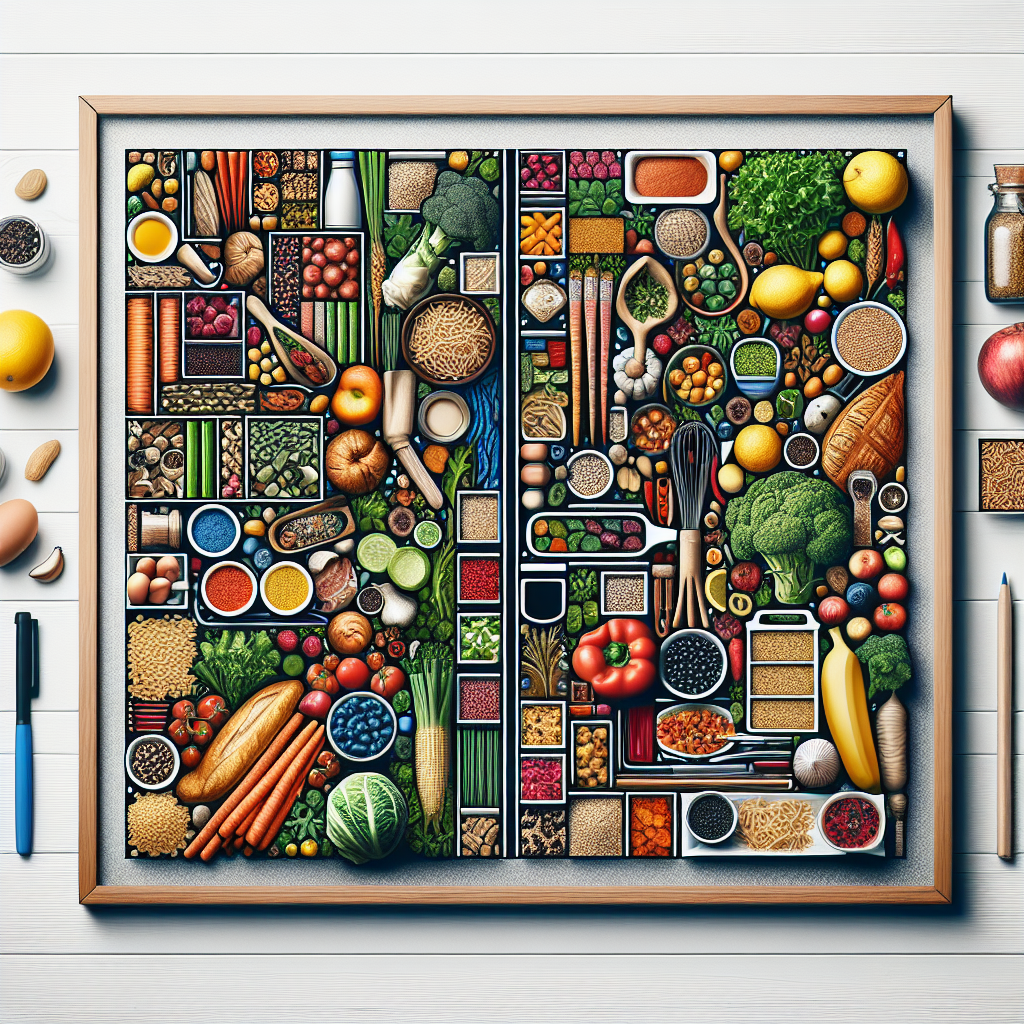– A Guide to Meal Planning for Gluten-Free Diets
Meal planning for special diets requires careful consideration of various nutritional needs. When it comes to catering to a gluten-free diet, it’s essential to be mindful of ingredients that contain gluten and to find suitable substitutes. A well-thought-out meal plan for those with gluten sensitivities or celiac disease can ensure that they receive the necessary nutrients while enjoying delicious and satisfying meals.
Start by familiarizing yourself with gluten-free alternatives to common grains such as wheat, barley, and rye. Opt for naturally gluten-free grains like quinoa, rice, and oats (labeled gluten-free) to form the foundation of your meals. Incorporating a variety of fruits, vegetables, lean proteins, and healthy fats will further enhance the nutritional value of the gluten-free diet.
It’s also crucial to diligently read food labels and be aware of hidden sources of gluten, such as sauces, dressings, and processed foods. Embracing whole, unprocessed foods can simplify the meal planning process and reduce the risk of gluten contamination.
By understanding the principles of gluten-free meal planning and staying knowledgeable about appropriate ingredient substitutions, individuals can effectively adhere to a gluten-free diet without feeling restricted in their food choices. Whether you are personally following a gluten-free diet or preparing meals for someone else, thoughtful meal planning can contribute to overall well-being and enjoyment of food.
– Meeting Nutritional Needs: Meal Planning for Diabetics
Meal planning for diabetics requires a thoughtful approach to catering to specific nutritional needs while ensuring balanced and healthy meals. Individuals with diabetes need to manage their carbohydrate intake to maintain stable blood sugar levels, making it crucial to choose foods with a low glycemic index. An effective meal plan for diabetics focuses on incorporating fiber-rich foods, lean proteins, and healthy fats while limiting added sugars and refined grains.
Furthermore, portion control is key for diabetics to regulate calorie intake and manage weight. By including a variety of colorful vegetables, whole grains, and fruits in the meal plan, diabetics can ensure a diverse array of nutrients while controlling their blood sugar levels. Balancing meals and snacks with a combination of carbohydrates, protein, and healthy fats helps in avoiding blood sugar spikes and crashes.
In addition, meal planning for diabetics involves paying attention to food preparation methods. Opting for cooking techniques like grilling, baking, and steaming over frying can help reduce the overall intake of unhealthy fats, thus promoting heart health and overall well-being for individuals with diabetes.
Overall, a well-crafted meal plan for diabetics focuses on wholesome, nutrient-dense foods that support blood sugar management and contribute to a balanced diet, essential for managing diabetes effectively.
– Catering to Different Dietary Restrictions: Meal Planning for Allergies
When it comes to meal planning for special diets, catering to different dietary restrictions is of utmost importance. One of the most common and crucial restrictions to consider is allergies. Whether it’s a peanut allergy, gluten intolerance, or lactose intolerance, creating a meal plan that accommodates these dietary restrictions requires careful attention to ingredients and their potential allergens.
For individuals with allergies, it’s essential to thoroughly read food labels and be aware of cross-contamination risks. Meal planners need to meticulously select ingredients and cooking methods to ensure that the meals are free from the specified allergens. Additionally, being knowledgeable about suitable substitutions for allergenic ingredients is vital to create diverse and enjoyable meal options.
Furthermore, communication is key when catering to allergies in meal planning. Whether it’s in a household setting or a professional catering environment, understanding the specific allergies and preferences of those being served is crucial to prevent any adverse reactions. By prioritizing transparency and open dialogue, meal planners can ensure that all dietary restrictions, including allergies, are taken into account when creating a well-rounded and safe meal plan.
